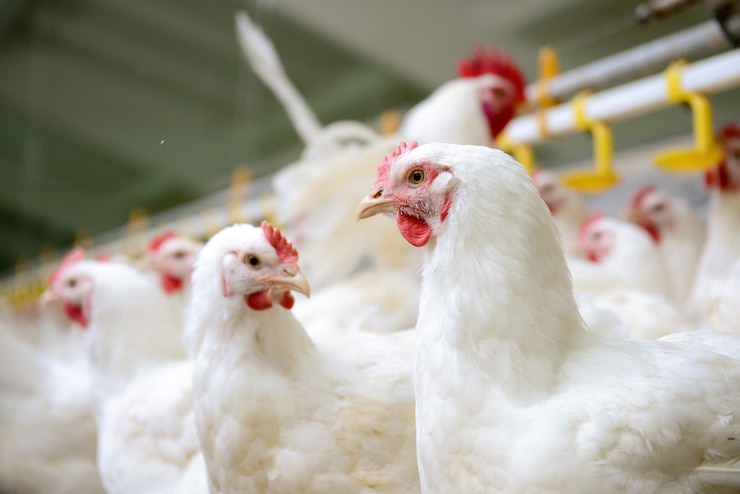Infectious Coryza is a highly contagious bacterial respiratory disease that affects chickens worldwide, including South Africa. It is caused by the bacterium Avibacterium paragallinarum and can cause significant economic losses in the poultry industry. As a chicken owner, it is crucial to be familiar with the signs and symptoms of Infectious Coryza to quickly identify and manage the disease. In this article, we will discuss the common signs that your chickens may have Infectious Coryza.
- Nasal Discharge: One of the primary signs of Infectious Coryza is nasal discharge. Infected chickens may have a watery, sticky, or thick mucus-like discharge coming from their nostrils. The discharge can range in color from clear to yellowish or greenish. Monitor your chickens for any signs of nasal discharge and pay attention to its consistency and color.
- Swollen and Inflamed Eyes: Infectious Coryza can cause swelling and inflammation of the eyes in affected chickens. The eyes may appear red, puffy, and have increased tear production. You may notice your chickens squinting or keeping their eyes closed due to discomfort. Examine your chickens’ eyes regularly for any signs of swelling or inflammation.
- Facial Swelling: Infected chickens may develop swollen and inflamed facial tissues, particularly around the eyes and beak. The swelling can make the face appear puffy and distorted. Monitor your chickens’ facial appearance for any noticeable changes.
- Respiratory Symptoms: Respiratory distress is a common feature of Infectious Coryza. Infected chickens may exhibit coughing, sneezing, and wheezing. They may also have difficulty breathing and make gurgling or rattling sounds while breathing. Pay close attention to any changes in their respiratory patterns and the presence of abnormal sounds.
- Reduced Appetite and Water Intake: Chickens affected by Infectious Coryza may show a decrease in appetite and reduced water intake. They may appear less interested in food and water and exhibit signs of dehydration. Monitor your chickens’ feeding and drinking habits for any noticeable changes.
- Reduced Egg Production: Infectious Coryza can lead to a decrease in egg production in affected hens. Infected birds may lay fewer eggs or produce eggs with thin shells, abnormal shapes, or reduced quality. Keep track of your flock’s egg production and note any significant declines or changes in egg quality.
- General Lethargy and Depression: Infected chickens often appear lethargic, depressed, and less active than usual. They may exhibit a lack of energy, reduced social interactions, and a reluctance to move. Chickens affected by Infectious Coryza may isolate themselves from the flock and prefer to rest rather than engage in normal behaviors.
It is important to note that the severity and combination of symptoms can vary depending on the strain of Avibacterium paragallinarum and the overall health status of the birds. If you suspect Infectious Coryza in your flock or observe any unusual signs, it is essential to seek veterinary assistance or consult with poultry health experts for accurate diagnosis and appropriate management strategies.
Prevention and control are key to managing Infectious Coryza. Implementing strict biosecurity measures, maintaining proper hygiene, practicing vaccination protocols, and minimizing stressors can help reduce the risk of infection and the spread of the disease within your flock and the wider poultry community.
By closely monitoring your chickens, implementing preventive measures, and seeking professional advice when needed, you can minimize the impact of Infectious Coryza on your flock and maintain a healthy and productive chicken population in South Africa.
Join 'Farmers Mag' WhatsApp Channel
Get the latest Farming news and tips delivered straight to your WhatsApp
CLICK HERE TO JOIN






